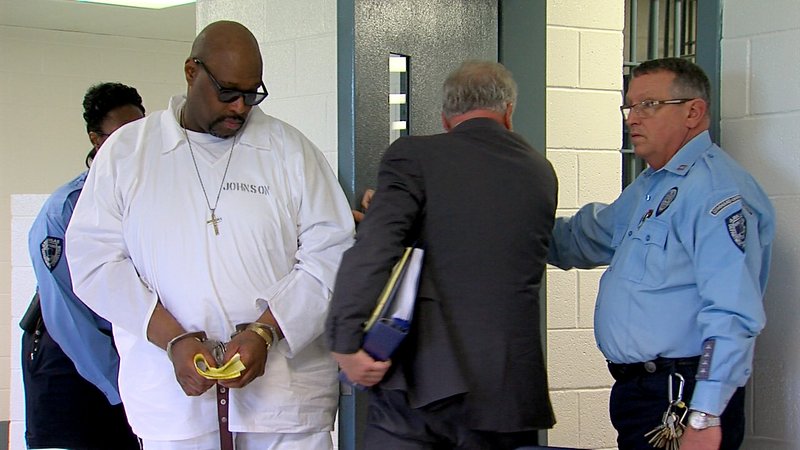The Arkansas Supreme Court on Thursday declined to reconsider its decision last year to deny DNA retesting for Stacey Johnson, a convicted killer on death row at the Varner Unit.
Johnson, who was condemned to death for the 1993 murder of Carol Heath in De Queen, was spared from execution in 2017 while mounting an appeal to have evidence from two crime scenes retested.
After hearing the appeal, the Arkansas justices issued a 5-2 ruling in December that further DNA testing was unnecessary, and that sufficient evidence already proved Johnson's guilt.
Johnson filed a petition for rehearing, which was denied Thursday by the same 5-2 split. The decision effectively ended his state appeals. He does not have an execution date set.
Since 2017, Johnson has been represented by the New York-based Innocence Project, which said Thursday that it will continue to seek a review of the evidence through federal courts.
In his petition for rehearing, Johnson's attorneys argued that the court's decision to deny retesting was an error that "misapprehends the probative nature of the evidence that would be subject to testing."
That evidence includes potential DNA from a bite mark found on Heath's body, swabs from a rape kit, and "Caucasian" hairs found near Heath's body and at a second location where the killer dumped bloody clothes. Johnson, who is black, and his attorneys have long pointed to Heath's ex-boyfriend, who was white, as a potential suspect. The ex-boyfriend has since died.
"For more than two decades, Stacey Johnson has consistently maintained his innocence of the murder of Carol Heath," Juan Martinez, one of Johnson's attorneys at the Innocence Project, said in a statement. "At every turn, he has sought DNA testing that can identify the person who actually committed this murder. He has only asked for the same type of DNA testing that would be routinely performed had this crime been investigated today."
As they did in December, however, the justices concluded that the DNA evidence -- even if matched to another person -- would not be enough to prove Johnson's innocence in light of other forensic evidence found at both scenes that was linked to Johnson.
Justice Shawn Womack, in a brief opinion for the majority, said Johnson had failed to raise appropriate arguments as to why the court should revisit its decision.
"We will not consider the merits of his repetitive claims or his novel constitutional arguments that were raised for the first time in his petition," Womack wrote.
Womack was joined in the majority by Chief Justice Dan Kemp and justices Karen Baker, Courtney Hudson and Rhonda Wood.
Justices Robin Wynne and Josephine "Jo" Hart dissented, as they did in December.
Both wrote separately that they believed the evidence merited further testing.
Metro on 02/21/2020
